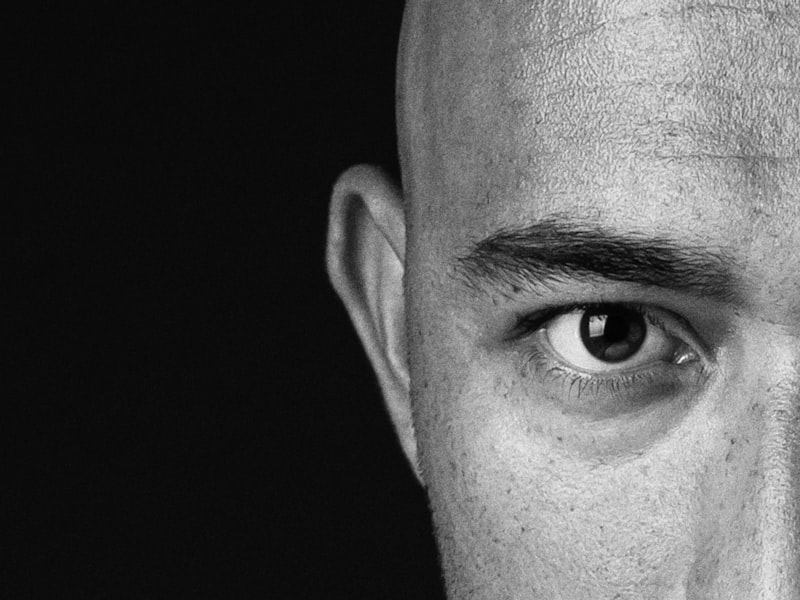How To Make A Profitable Adhd Diagnosis Adults Uk Entrepreneur Even If You're Not Business-Savvy

ADHD Diagnosis
It is important to diagnose ADHD to get the appropriate treatment for any symptoms that could impact your life at home at school, at work, or in your home.
Health professionals utilize a variety of criteria to arrive at an accurate diagnosis. These include a self-report questionnaire, interview and brain imaging studies.
Diagnosing ADHD
It is crucial to get an accurate diagnosis if you're uncertain if your child suffers from ADHD. This will assist you and your doctor determine the most effective treatment plan for your child. The right ADHD specialist can assist you and your child to determine the cause of the symptoms and the best way to treat the symptoms.

You can find an ADHD specialist through your health plan, your child's school or a nonprofit organization such as Children and Adults with Attention-Deficit/Hyperactivity Disorder (CHADD). Also, be sure to confirm the professional's academic credentials.
Many doctors will use an array of tests to diagnose ADHD which includes tests and clinical interviews to determine the cause of the symptoms. These tests include questionnaires that are designed to identify the symptoms and signs of ADHD.
The assessment will likely include questions about the patient's behavior, social life and school or work performance. The evaluation will be conducted with the assistance of teachers, therapists and other professionals who work with the patient.
The initial evaluation of a doctor will usually be based on the patient's history of symptoms and how they have affected their lives. A physical exam will be conducted to determine if there are any medical conditions that may be contributing to the symptoms.
The requirements for a formal diagnosis of ADHD must be fulfilled by the American Psychiatric Association's Diagnostic and Statistical Manual of Mental Disorders Fifth Edition (DSM-5). This manual outlines the specific characteristics that are needed to be identified as having ADHD.
The symptoms must have occurred before 12 years of age and can lead to serious issues in many different settings, such as at school, at home and in relationships with family members. The symptoms must have been present for at least six month and cannot be addressed with medication or therapy.
Interviews with the patient as well as someone who is familiar with the patient, for example a spouse, parent or child, can help to identify the underlying causes of the symptoms. This is particularly important in cases where the underlying causes are not apparent in reports, tests, or other assessments.
Signs and symptoms
ADHD symptoms typically develop at an early age and can continue throughout adulthood. The symptoms of ADHD are difficult to identify in children who are having difficulty paying attention, are not attentive, or fidgety.
For instance, some kids might lose things, forget appointments, or have trouble paying attention or following directions. They may also have difficulty working through schoolwork or creating reports or forms.
After speaking with the parents or teachers, as well as the child, a psychiatrist or a mental health professional can diagnose ADHD. He or she will also look at the child's behavior.
A physical exam will be performed to determine if there are any other medical conditions that could cause similar symptoms. The doctor might also suggest that your child go through the neuropsychological or psychological test.
ADHD can lead to depression and anxiety in some people. They could also be prone to addiction to drugs or criminal activity.
It can be difficult to manage and could have an impact on your family. You may feel anger or blame your child. Talking to an expert in mental health is an excellent way to discover new strategies to manage your emotions and to understand how ADHD affects you and your child.
Your doctor might request you to explain your symptoms and how they affect your life. They might also ask you to describe how you interact with other people, particularly people who are different from you.
For most people, the diagnosis process is conducted by a trained psychologist or psychiatrist. The process involves a thorough assessment which can take 6 hours before the diagnosis is confirmed. Once medication is prescribed the procedure is typically completed.
You will be inquired about your child's behavior and how they compare to those of other children his age, based on the information from your child's teacher, you and any other caregivers who spend time with her, such as day care or coach personnel. The counselor will also learn from you and your child's teacher about the behavior of your child in different settings, like at school, at home, at work as well as social situations.
Treatment
A person suffering from ADHD is likely to require one or more treatments depending on the severity of their condition and what is most effective for them. These treatments can include medicine, behavior therapy, and education on time management organizing, stress reduction.
Children with ADHD are treated most often with stimulant medication. These drugs can help people focus on tasks and manage their impulsive behavior. They can also help reduce depression and anxiety.
Some of the most popular stimulants are methylphenidate (Ritalin), and lisdexamfetamine(Adderall). Adults with ADHD can also be treated with other medications, such as bupropion and atomoxetine.
Talk therapy is a different option. It can help those with ADHD face issues brought on by long-standing patterns of low-performance in academics, failure in job-related turnover, as well as relationship conflict.
Cognitive behavioral therapy (or CBT) is a type of psychotherapy that employs an approach to behavior in order to change the way that an individual thinks or behaves. CBT can be used in one session or in groups.
An ADHD specialist is the most person to conduct an assessment. They might be a psychiatrist psychologist, a social worker, or any other mental health professional.
An interview is the first step in any psychiatric or medical assessment. This provides information about the patient's past behaviour and present symptoms. The interview is likely to include questions about the patient's family, education, and work environment and a brief overview of the person’s personal life.
Patients are asked to complete a series of standardized behavior rating scales. These are based on research that compares ADHD-related behavior with those of people suffering from ADHD. They provide data that is objective and can be used to make a complete evaluation.
Many children with ADHD also suffer from other issues that are related to their ADHD, such as depression or anxiety. These conditions can be treated with medication or counseling however the treatment for these conditions is usually not enough to replace the need for stimulant drugs or behavioral therapies.
A person suffering from ADHD diagnosed as a child will often continue to be a candidate for the disorder throughout their lifetime. This could require continuous medical or behavioral therapy. The treatment options are antidepressants, behavioral therapies and a mixture of therapy and medication.
Support
If you or a family member has been diagnosed with ADHD There is a lot of help available. There are many resources available to assist you, such as online resources and medication and therapists.
how to diagnosis adhd could recommend therapy and medication to treat your disorder. The type of treatment will depend on the underlying causes of your ADHD.
To combat symptoms and boost neurotransmitters in the brain, medications are used. Stimulants like methylphenidate and amphetamine are the most commonly used. They work by increasing attention and decreasing hyperactivity and impulsivity. Nonstimulants such as antidepressants or atomoxetine, which have fewer adverse effects and are slower, are also alternatives.
You can also exercise to increase your concentration and focus. Behavioral therapies, like cognitive behavioral therapy (CBT) can be effective in managing ADHD symptoms.
A Therapist can help you develop new skills to deal with your situation and change negative behaviors into positive ones. They can help you understand how to manage anxiety, resolve conflicts, and communicate with others.
Your doctor may request that you or your family members fill out questionnaires that assess your mood and behavior. They could also ask for additional tests for mental or learning disabilities.
Before making a diagnosis your doctor is likely to want to see you in person. This is because it is not always possible to gather answers from questionnaires on their own. In some cases the doctor will interview you and someone who knows you well such as your spouse, an adult sibling, or a teacher, coach, or nanny for a child.
The exam results will be used to determine the best treatment strategy for your child or you. In the majority of cases, the doctor will recommend a treatment plan that combines medication with behavioral therapy, such as CBT.
To assist parents of children with ADHD to cope with their children's ADHD, they will receive a set of guidelines to assist their children. The guidelines usually include positive parenting strategies like adhering to routines and helping your child develop social skills, and speaking to their school about their needs.
